Interview with Ed Stern
Ed Stern: The quote I keep next to me is Matisse,“When you’re out of willpower you can call on stubbornness.” It’s exactly me. I’m a New Yorker so I don’t have the best willpower but I have a lot of stubbornness.
Theresa Rebeck: Do you think that stubbornness has informed your leadership of Cincinnati Playhouse in the Park? Do you think it has enabled you to be as good as you are? Is that part of the equation for an Artistic Director? Stubbornness?
Ed: I think part of being an Artistic Director is figuring out what the marriage is between you and the community. It really does come down to that. You form a relationship with the community, but the idea that I’m going to impose my interests and standards over the community doesn’t really work. And the idea that the community tells me what they want to see and I become their servant doesn’t work either. So you create dialogue. It’s fair to say when you’re doing new work sometimes you’re going to be in opposition to some of the sensibility of the community, but then again you aren’t doing all new work so you can mix and match.
Theresa: When did you become the Artistic Director of Cincinnati Playhouse in the Park?
Ed: The 1992–1993 season was my first year.
Theresa: And at that time it did not have a reputation as a crucible of new work, did it?
Ed: Right, but it had started a few years earlier with the Lois and Richard Rosenthal New Play Prize. When I came here, Lois Rosenthal was on the board and the first day I was here for interviews she talked to me about the new play prize. I said that is great because it assures the theater's ability to do a new play on a consistent basis but the important thing with the new play prize is that it really be unconditional.
You don’t box yourself in as an artistic director by saying I want the best play that the community will like or I need the best comedy because the rest of the season is heavier. You pick the best new play that you can find. That’s something I’ve tried to do on a consistent basis. What’s interesting to me is when you do that with new plays, often times you expect the audience to rebel, but they’ve come along for the ride far more than they haven’t. That is one of the rewarding elements of running this theater, picking plays you think people are going to hate and then they don’t hate it; they embrace it.
Theresa: Do you do more than one new play a year now?
Ed: Yes, nowadays we tend to do more. Last year was an aberration. It was our fiftieth anniversary and I needed to do something that was beyond what we ordinarily do, so five of the ten plays we did were new. That was remarkable; I’ve never been connected to a season with so many new works. I said to the board of trustees, I’ve been doing this now for thirty years, ten years as the co-founder and artistic director of Indiana Repertory Theatre and twenty years here in Cincinnati, and I will never be connected with a season as extraordinary as the fiftieth anniversary season.
The cost of that season was higher than what we would ordinarily do with the workshops we did for all the new plays, as well as Three Sisters we commissioned from Sarah Ruhl. We had to do the first three weeks of rehearsals of Three Sisters in New York because Sarah was pregnant and doing In the Next Room or the vibrator play. I went to friends of the theater and raised an additional $400,000. It that was a thrill to be able to fit all those pieces together. But we tend to not do more than one or two new plays a year.
In addition, since 2000, we do a new play prize for young audiences underwritten by Macy’s. Years ago I remember seeing a play for young people at the National Theatre in London. It was based on a true story about three whales that got caught in the Bering Sea and the navies from the Soviet Union and the United States worked together to free the whales. This was a young people’s play about Soviet-American relations and it was terrific.
There’s such a history in Canada and England of plays of consequence for young people, which is not a tradition we’ve had in this country. I thought we needed to start developing plays that were not babysitting plays but rather plays that really dealt with things that young people wanted to deal with. In 2000, we started The Macy's New Play Prize for Young Audiences. We’ve produced plays that deal with peer pressure, the boat lift from Cuba, the Hispanic community within the United States; that deal with autism—things young people never thought theater could be about. That’s been a thrill to see young people gravitating towards theater because suddenly it means something; it’s not just trivialized.
Theresa: Because I am a living playwright I do advocate for new plays a lot. That’s why I wanted to talk to you and get the word out about artistic directors who make the production of new plays vital and successful because so many people look me in the face and say audiences don’t want to see new plays and I think why not? My experience is they do. Why do you think those people say that to me? That audiences don’t like new plays?
Ed: Well, I wonder if they’re New York-centric people who are conditioned to what’s happening on Broadway. There is a kernel of truth to what they’re saying and they are forecasting the future that for me is more partly cloudy than sunny. There is a change going on in regional theater that is worrisome. It’s a change from subscription ticket holders to single ticket holders. This theater at its height had 21,000 subscribers and now it has a little over 16,000, which is damn good and makes it one of the top theaters for subscribers. The wonderful thing with subscribers is they show a loyalty to the organization by coming along for the ride. But now more and more of them are picking and choosing what plays they want to see. For years they could choose one theater or both theaters, now they can pick and choose whatever shows they want in either theater. They were more willing to say, I don’t know what that play is but I’ll add it to the mix.
When you go to a single ticket basis my fear is that to sell tickets the play title has to be familiar to the audience. That doesn’t only screw living playwrights; it screws dead playwrights too because suddenly Tennessee Williams will have written three or four plays, William Shakespeare will have written six or seven plays, Arthur Miller—maybe four plays—because who’s going to do Vieux Carre or In the Bar of a Tokyo Hotel over Glass Menagerie or Street Car? Who’s going to do The Archbishop’s Ceiling and not Death of a Salesman?
Last June I was in London and I saw a play by Terrence Rattigen called After the Dance, which I’d never heard of. I was overwhelmed; it was an extraordinary event; it was a terrific production and for me, the best play he wrote, and I’d never heard of it. I remember talking to a critic there, Matt Wolff, and I said to Matt, I’ve never heard of this play. He said I’m embarrassed to tell you how many people in England didn’t know the play either until it was revived at The National. I think it’s terrific when we can unearth plays that have been disregarded. So I’m a little afraid that the shift from subscription to single ticket could make it harder for artistic directors to want to do new plays on a regular basis. I would hate it because one of the good things of having subscribers is putting a new play in front of them.
Last year we did Walter Mosley’s The Fall of Heaven. It was heavily subscribed at the beginning but the word of mouth built on subscription sales and suddenly single-ticket people are purchasing tickets at the end of the run and it fills out the whole run. Happy days. If you lose those subscribers and it’s all single tickets but the play title is an unknown to theater-goers you’re having to try to keep it going even though word of mouth is going to be slower to build. It costs us two cents on the dollar to renew a subscriber but the single ticket buyer costs us about thirty-seven cents on the dollar. Where is that additional money coming from? It’s coming from production and that’s ridiculous. If we have to reduce the quality of a production to get people in the seats we’re screwed. The very thing we should be doing—presenting high quality work—is compromised.
These are some of my fears. It’s not going to be realized for five, ten, twenty years but it does concern me and if we stop doing new plays in regional theaters on a consistent basis then we risk becoming like opera companies. We do the Aida’s, the Boheme’s and occasionally we do something a little more risky.
Theresa: In addition, the trend of looking to New York to define what’s an important new play would just get bigger?
Ed: New York has always been a bit of a sore point for me, maybe because I come from New York and I grew up in New York. I never thought of New York as Mecca. I left New York to go to college at the University of Virginia. When I was in high school in New York I was seeing fifty shows a year, every Friday night for fifty weeks a year. Then I found myself in Charlottesville, Virginia, and I’m having withdrawal pains. But I hear about this place called Arena Stage so I drive up there regularly. This was their hey day and I see productions of The Iceman Cometh, Saint Joan, Oh What A Lovely War— some of these I can’t see in New York—and I fell in love with regional theater. So for me that’s always been a theater Mecca other than New York. New York can be good; it can be bad; it’s a crapshoot. But I love to think we can do things on a better and more consistent basis here even though we don’t have some of the trappings New York has.
Here’s an example of what I mean about New York. Do you remember Ted Tally’s Terra Nova?
Theresa: Yes.
Ed: Regional theaters were doing it left and right and then the American Place Theatre did a poor production of it that got badly reviewed and suddenly regional theaters weren’t doing it anymore. Somehow New York said it wasn’t good enough and suddenly the play disappeared from regional theaters.
Another example: A few years ago we did Michelle Lowe’s Smell of the Kill. We had announced we were doing the play and then a Broadway production came about and the Broadway production was lousy. It died a death it should have died. I remember one of the reviewers here in Cincinnati called me and said are you going to do the play now? I was stunned. Why shouldn’t I? I liked the play. It got bad reviews in New York and it deserved the bad reviews. The expectation at times was that regional theaters should follow New York.
Theresa: So you feel that energy is out there?
Ed: Yeah, but I never bought into that energy. Maybe it’s having grown up in New York and having seen plenty of garbage there.
I don’t have any agenda with any new play except to do new plays I believe in... My attitude has always been if you can figure out what my agenda is I’ll give you a hundred dollars because I don’t know what my agenda is except to do good plays and do them well.
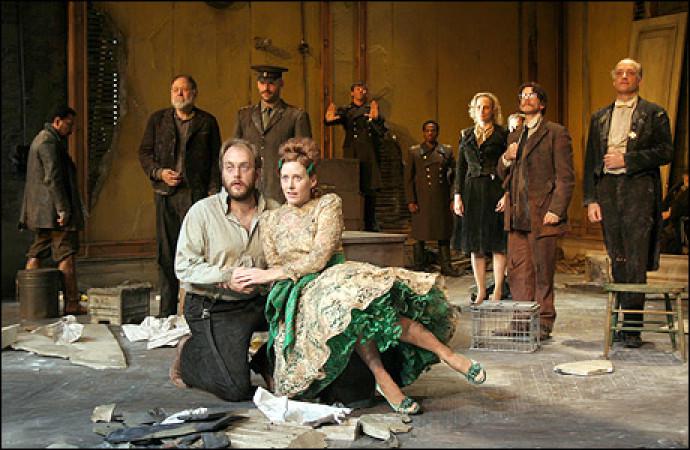
Theresa: It’s happened to me. I had a play that a lot of theaters were interested in doing. They were putting it in their seasons and then it got a poor review in New York and everyone dropped it. It is painful when it happens. I finally confronted one of the artistic directors. He said that all the critics all over the country only repeat what is said in The Times. Is that true?
Ed: I hope that’s not true. It takes a certain element of courage to do new plays. We lost the original new play prize because the funders of the prize hated a play I chose but I decided to do the play anyway and support was dropped. That’s sort of a shame but you have to stick with what you want to do. Suddenly I’m out of a new play prize because there was a difference of opinion between the people giving the money and me.
Theresa: So you do have to have stubbornness and nerve.
Ed: Yeah, I remember I got applauded for standing up to the pressure to not do this play—a play called Hiding Behind Comets by Brian Dykstra. It turned into a huge success here. It had it all; it had gore; it had language issues; wonderful violence; all these great American virtues. And the people who were supporting the prize were suddenly not supporting the prize. So those in the business were very rah-rah Ed Stern. But to be honest, if it had been a lot more money, I don’t know if I would have had the courage. I don’t put on the hat of hero too easily and what can you do? You’re supposed to find the best play and I did. I found it and you can’t pull back now because someone says its not quite what we want.
Years ago a professor said something that I know is probably incorrect but it has stuck with me to this day. He said the first production of any new play is the definitive production. I love that idea; that it’s not necessarily going to be the best production but the definitive production. It’s helped in the shaping of something and that’s always going to be there. The Fall of Heaven opened tonight in Saint Louis, a different production than what we did last year, but whatever changes have happened its still the core of what we created here and I adore that. The first year I was here we did Jeff Hatcher’s Scotland Road and there was one stage direction that was fairly impossible to achieve. A woman opens a door and the door is caked in ice and the ice breaks into a thousand pieces. Blackout. Lights come up, the last few pieces are put into a bucket. That was a little too complicated; it wasn’t going to work. But through improvisation we created a sequence with champagne buckets and the ice falling and being picked up, and that’s in the play now, that stage direction which came out of a discussion nineteen years ago in Cincinnati. That’s a thrill, to help in that shaping, in that creation.
I think that is why new plays always have a real level of excitement and with that is a certain responsibility to take the time to allow the play to have the necessary birthing pangs. The one thing I never want to hear from a playwright on the opening night of a new play is now I know what I want to do with the play. That would kill me because you’ve invested so much and my attitude is my audiences deserve to see the best of that play so I need to invest in it as much as possible to make sure that my audience sees that play as it should be seen.
Theresa: Can you talk a little more about how easily you move between new plays and revivals? I’m still perplexed about why it is difficult for other major regional theaters at this moment. You talked about the future but how does your audience respond to new plays?
Ed: I think it has grown and early on we weren’t doing as many new plays as we have in the last few years. Last year we did a play by David Bar Katz called The History of Invulnerability that is about Superman and the Holocaust. Tough play. Our audiences loved it. We did this new musical called Daddy Longlegs, a sweet romantic two-hander, then we did Walter Mosley’s The Fall of Heaven, Sarah Ruhl’s Three Sisters, Michelle Lowe did a new drama. So you look at those plays and it’s all over the place.
I don’t have any agenda with any new play except to do new plays I believe in. Sometimes I am the last person to pick up on something. With this season, I was sitting with Jackie Demaline, the drama critic for the Cincinnati Enquirer, and she suddenly says you have all these women playwrights next year, there’s Julia Cho, Elizabeth Gregory Wilder—and I said yeah, who knew? She wanted to applaud me and I didn’t even pick up on that until she said it. I didn’t have any agenda except to do plays I believed in. I didn’t have a mandate to do that many plays by women. I think people can come to see all of them and love the ones they want to love. But you do a play like The History of Invulnerability with strong violence and nudity, which deals with a lot of issues, and the audience is really overwhelmed by the work and loves it for its own sake.
If you’re going to do a newer play you better invest in it to make sure it is as good as you can do it. Sometimes I think when people are committed to a certain number of new plays each year, there’s a fear of are we giving each its due? I think it’s important for new plays that the time be allotted to make them as terrific as they can be. We did a play by Angus MacLachlan, The Dead Eye Boy, in 2000 and at the end of the play a thirteen-year-old boy is suffocated by having masking tape put around his face. Well that was 2000 and I came here in 1992-93. It might have been tough early on to get away with that. Our audiences loved it. We’re doing a third new play by Carson Kreitzer. It began with The Love Song of J. Robert Oppenheimer. We got Carson and Mark Wing-Davey together and created a sort of marriage here at the Playhouse, and Oppenheimer was a remarkable play. The premise is Lilith, the original woman, and Oppenheimer are two outcast Jews in the desert. It was a play of vast imagination, great language; I didn’t know how the audiences would feel but they loved it. They recognized how unique this play was.
One of my problems with new plays is we get so many of them and so many of them feel like I’ve read them before and we’re not going to do those plays. That was the thing I said early on with the new play prize. We can’t do a new play that really has been done under a different title by a different playwright but it’s the same damn story. We’re interested in plays that are linguistically and stylistically more challenging, things that the audience may love or may hate but at least they’ve never seen it before. We’ve been pretty consistent about that and that’s always been a great pleasure for me, for people to come out and debate it however they want to do but that it is a unique experience.
Theresa: So you would say it’s important for new plays to be stylistically different? So you’re looking for a different kind of theatricality out of contemporary theater?
Ed: For me it’s important, and I would prefer that just because coming to a new play there’s already a charged excitement, a charged energy. The audience sees in it something new and I think that is grand. One of my favorite memories is we did a play in 1996 by Carter Lewis called An Asian Jockey in Our Midst. It was a play about the Japanese internment camps in California but there were time shifts and even racial shifts with African Americans in act one becoming Asians in act two and then Caucasians. It was an oblique play and I remember a gentleman coming up to me afterwards and saying he hated it. But then he stopped and turned and said but that leading lady was so remarkable in that role, she encompassed that role. So even though he hated the totality of the evening he came away with something glorious. That meant the world to me.
I have a problem when people say they hated everything; I just don’t believe it, but he could differentiate. And if you can create that kind of discernment within people, that’s remarkable. This year we did High, which should be coming to Broadway in mid-March, with Kathleen Turner. Here’s a play on our mainstage with strong language issues, nudity, drug addiction, male prostitution—all these great things that American musicals should be based on!—and Kathleen Turner, which probably mitigated some of that, but the fact of the matter is, it’s a very strong play and people went with it. Years ago I’m not sure they could have. I think they would have faulted me for doing something like this early on. I remember my first few years here people would see a play with political commentary or something and write me to say I see your agenda; I see where you are taking this theater. And my attitude has always been if you can figure out what my agenda is I’ll give you a hundred dollars because I don’t know what my agenda is except to do good plays and do them well.
Theresa: But honestly, and I commend you for this, you’ve just contradicted yourself by describing High because that wasn’t stylistically challenging, that was just a really good straight out play with some challenging material in it.
Ed: I think that’s fair. The storyline for our audiences was certainly strong and tough, but stylistically I wouldn’t claim it to be anything that’s monumental on its own. It’s a good yarn. You create your definitions and then you go against them all the time. But as long as you create your basis then the plays that really strike you that don’t fit you can still commit to. More of the shows do fit in terms of pushing linguistic or structural limits but we also haven’t done enough of those kind of plays.
Joe McDonough, who’s a local playwright, we’ve done three of his plays here, and Carson Kreitzer, this year will be her third play with us. It would be ideal if you can create a home for playwrights. We’ve really just done it with two playwrights. We’re doing this new play of Carson’s this year called Behind the Eye about Lee Miller, the model turned photographer. I remember sitting with Carson when she was conceiving the play and she said right now I’m seeing it as a series of slightly autonomous one acts but I have so many in my head I’m not sure that’s the right notion. I remember saying to her, why not make it two evenings? Two evenings of autonomous one acts. She paused and looked at me and said, “Leave it to you to come up with the most expensive way to do it.” Then a few months later she creates the show and we do a two-night reading of it at The Lark; the first night with five actors and the second night as a one-person show. And I thought this is amazing. We had lunch the next day and there was no question in my mind that the one-person show was a mistake. I suggested adding an extra actor to the midst. But I loved that ability of testing the waters in an uncontrolled way and I think Carson being here the third time she felt a freedom to try things. That’s the nice thing about having a home. You no longer need to impress; you’re only coming up with the best possible play.


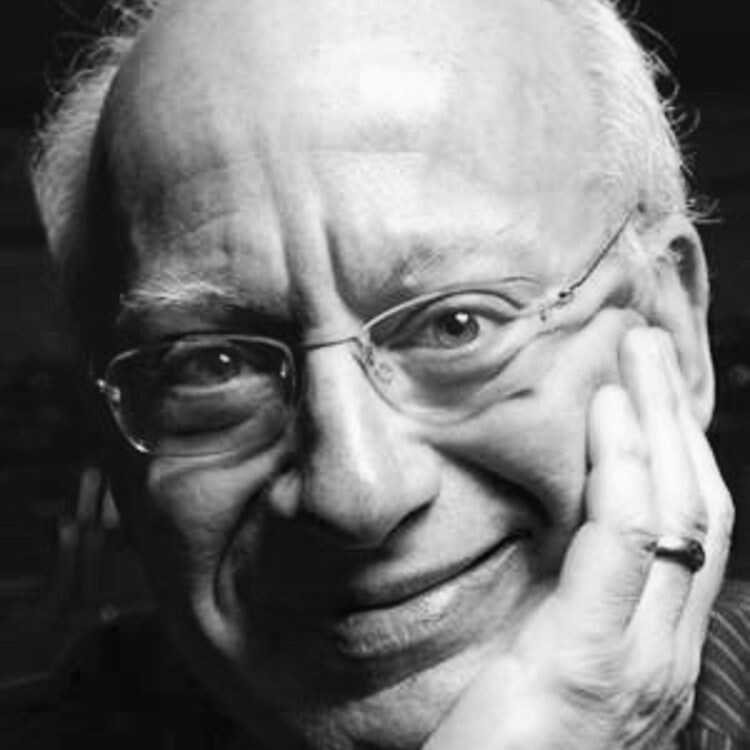
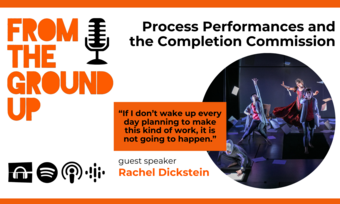


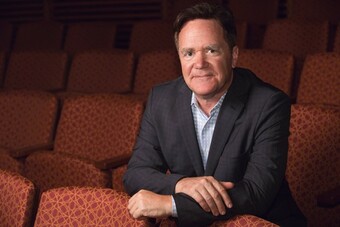


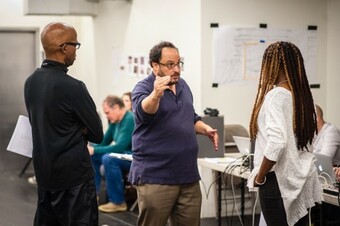


Comments
The article is just the start of the conversation—we want to know what you think about this subject, too! HowlRound is a space for knowledge-sharing, and we welcome spirited, thoughtful, and on-topic dialogue. Find our full comments policy here